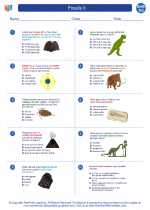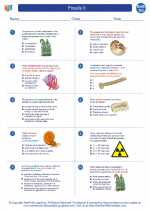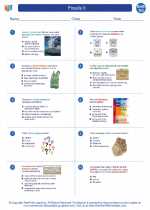Protein
Proteins are large, complex molecules that play many critical roles in the body. They are made up of smaller units called amino acids, which are linked together in a specific sequence to form a unique 3D structure. Proteins are essential for the structure, function, and regulation of the body's tissues and organs. They are involved in processes such as muscle contraction, immune response, and the transport of oxygen in the blood.
Structure of Proteins
Proteins are made up of long chains of amino acids, which are linked together by peptide bonds. There are 20 different amino acids that can be combined in various sequences to form a wide variety of proteins. The sequence of amino acids determines the unique structure and function of each protein.
Functions of Proteins
Proteins have a wide range of functions in the body, including:
- Structural support: Proteins such as collagen provide structure and support to tissues and organs.
- Enzymes: Many proteins act as enzymes, which catalyze chemical reactions in the body.
- Transport: Proteins such as hemoglobin transport molecules like oxygen in the blood.
- Immune function: Antibodies are proteins that help the body defend against foreign invaders.
- Cell signaling: Some proteins act as hormones or signaling molecules that regulate various processes in the body.
Sources of Protein
Protein is found in a variety of foods, including:
- Meat and poultry
- Fish and seafood
- Eggs and dairy products
- Legumes (beans, lentils, chickpeas)
- Nuts and seeds
- Tofu and other soy products
Study Guide
When studying proteins, it's important to understand their structure, function, and sources. Here are some key points to focus on:
- Describe the structure of proteins, including the role of amino acids and peptide bonds.
- Explain the various functions of proteins in the body, providing specific examples of proteins involved in different processes.
- Identify sources of protein in the diet and discuss the importance of including a variety of protein sources for a balanced diet.
- Consider the impact of protein deficiency or excess on health, and discuss the recommended daily intake of protein for different age groups and activity levels.
By understanding the structure, function, and importance of proteins, you can gain a deeper appreciation for their role in maintaining the body's health and function.
.


